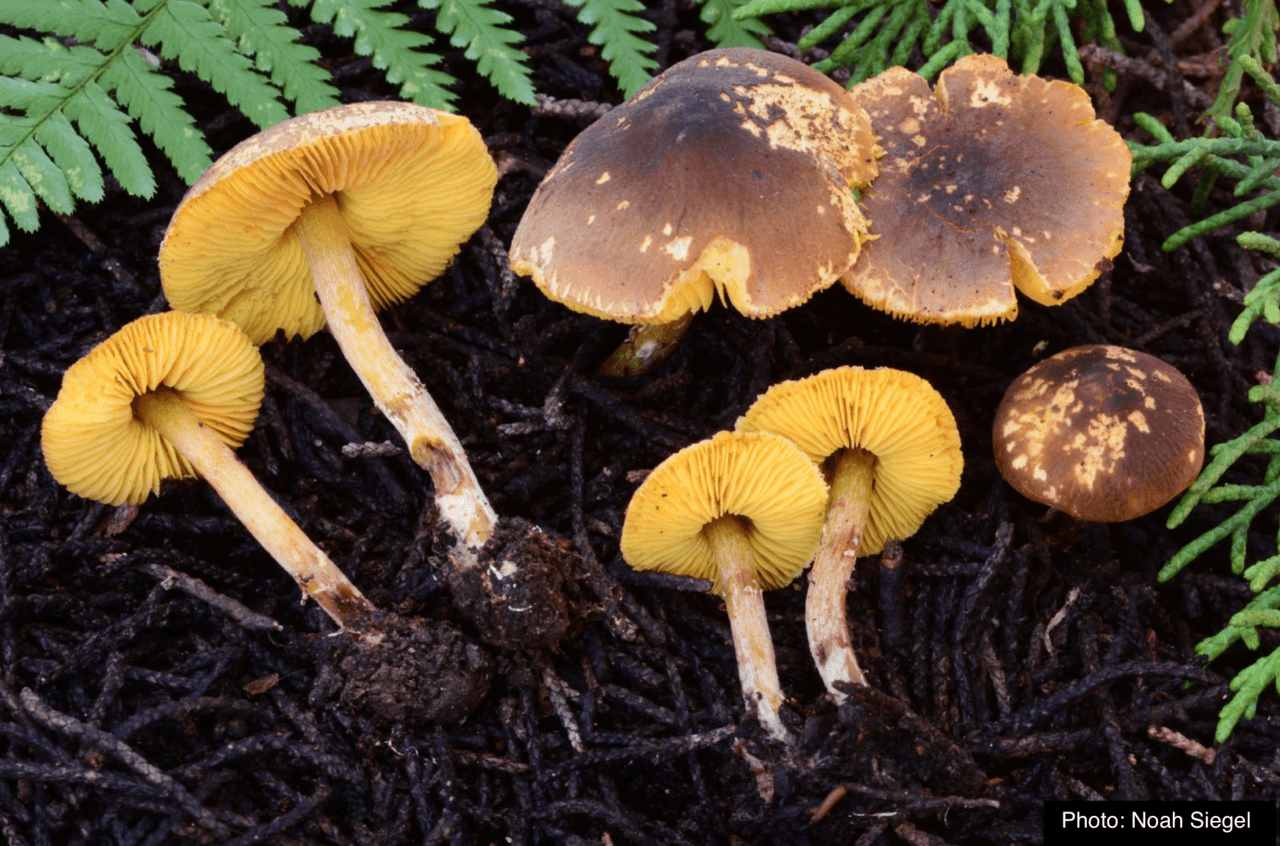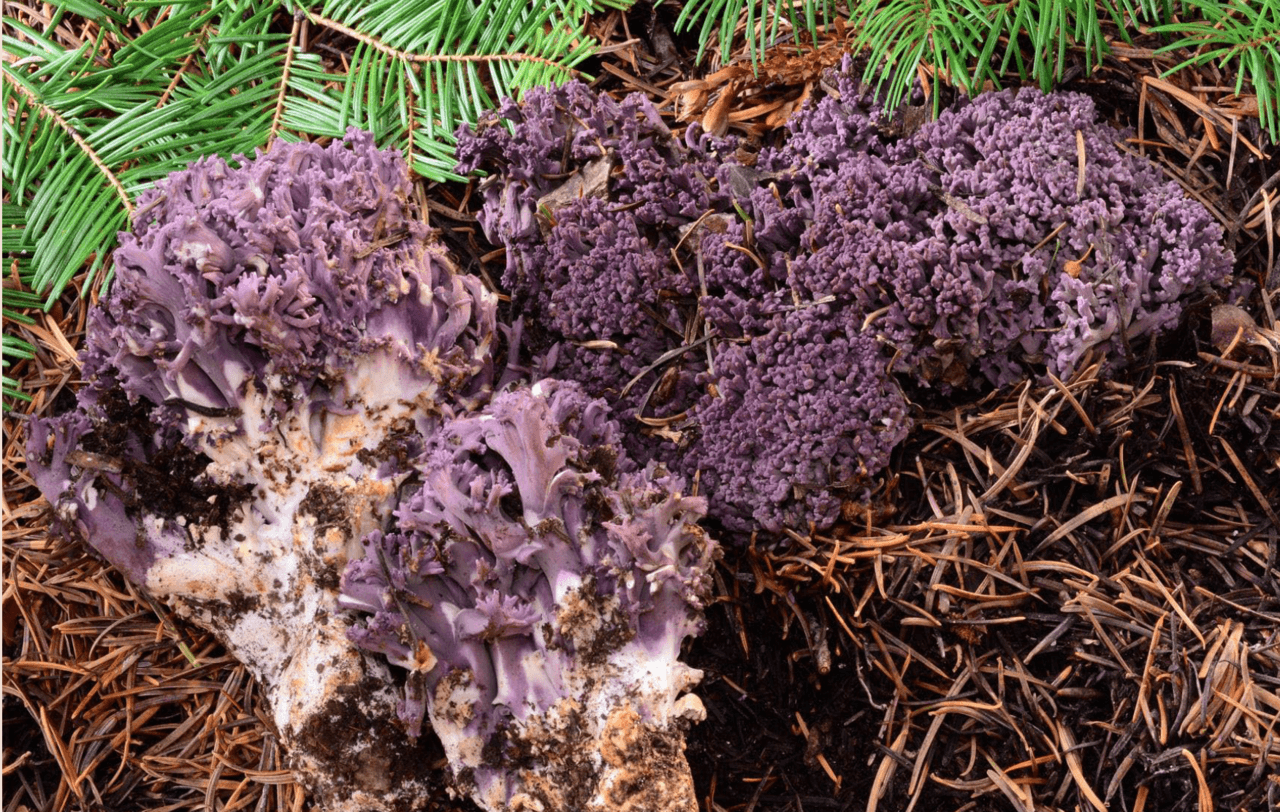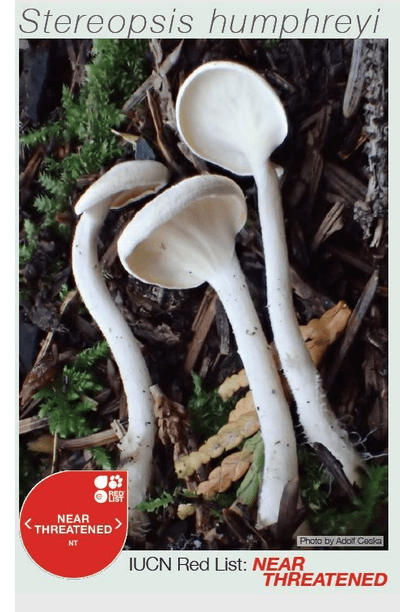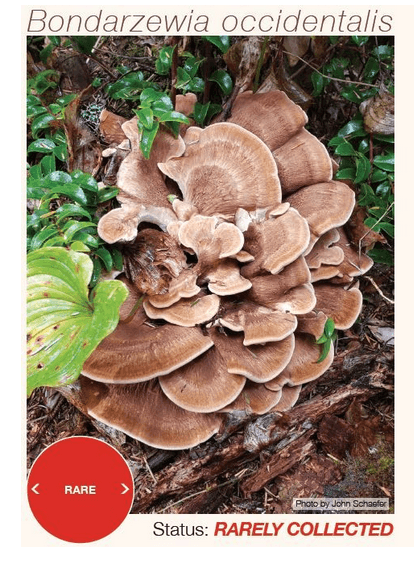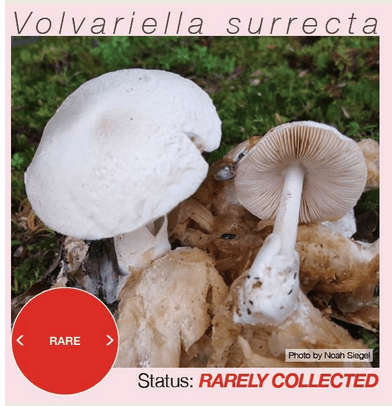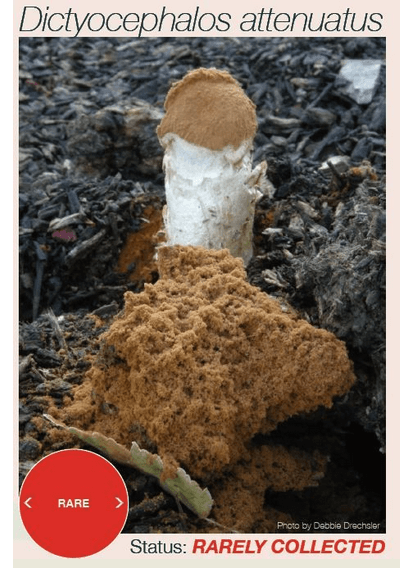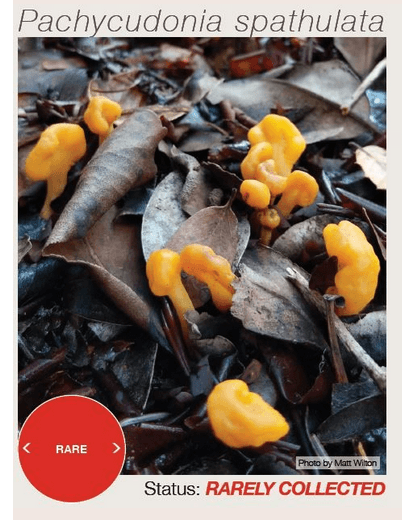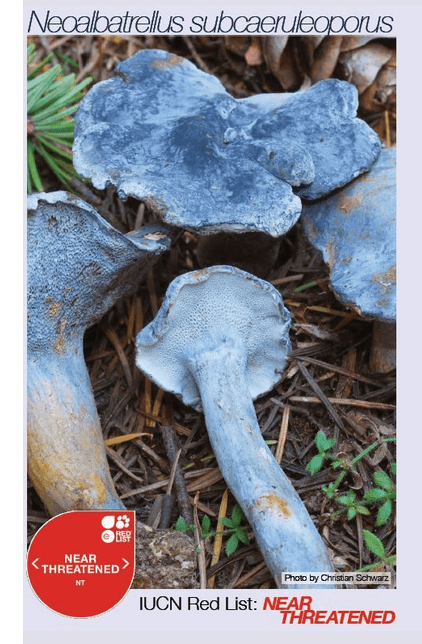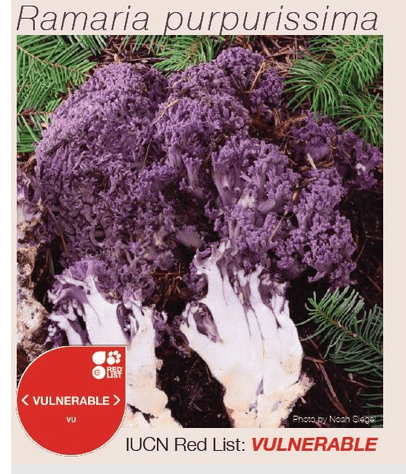Join our West Coast Rare 10 Challenge and help us document rare and threatened fungi
Like so many other organisms, fungi, along with their often fragile and threatened habitats, need our protection.
But unlike plants or animals, fungi rarely get considered in conservation plans. They lack legal protection. Of the 120,000 species that have been assessed for the IUCN Red List of threatened species only 371 are mushrooms - the rest are plants and animals. And not a single mushroom species is protected under the Endangered Species Act in the United States.
Why is that? Unlike plants or animals many species of fungi often only fruit for a few days a year and their fruiting bodies disappear quickly. They’re often inconspicuous and not enough people look for them and record them. And without a public record of their existence, they remain neglected, under-researched, misunderstood and unprotected.
Let’s begin to change this! Help us find and document 10 species of rare, under-documented and potentially threatened fungi on the West Coast. Scientists and conservationists need more data on these fungi in order to better understand and protect them - and all the other fungi they share their habitats with. Your high quality observations can make a difference.
This initiative covers the West Coast - from California all the way up to Alaska - and runs from October 15, 2020 to March 31, 2021.
Photo: Noah Siegel
How do I participate?
1. Decide which of the fungi on the list below might be growing in a habitat that you are planning to visit between October 15, 2020 and March 31, 2021.
2. A list of the 10 fungi with links to printable pdfs can be found below or here. Print out the pdf pamphlet for the species you’re interested in and bring it along, or have the information handy on your phone.
3. If you think you’ve found one of the Rare 10, follow the instructions on the pamphlet for each species. Or email us at westcoast_rare@fundis.org to let us know and we’ll let you know what to do next.
4. Don’t forget to tag us on Instagram with a picture of your find at #rare10challenge. A story of how you found it would be even better! Follow us on Facebook and Instagram to see what others are finding.
5. We are also very interested in the other fungi that you might come across in these habitats. Consider joining our iNaturalist Project and sharing your observation there. Instructions are here, if you’re unsure how to do this.
Make sure to get a collecting permit if you’re visiting an area where collecting is restricted. More information can be found at the bottom of this page.
The Rare 10 list has been compiled by mycologists Bitty Roy, Else Vellinga and Roo Vandegrift. Find out more about the FUNDIS fungal conservation working group here.
Email us at westcoast_rare@fundis.org with any questions. We can’t wait to see what you’ll find! And please share this information with anyone else who might be interested.
THE RARE 10
The Ghost Funnel
(Stereopsis humphreyi)
Region: Pacific Northwest: OR, WA, BC, AK
Habitat: Coastal Sitka spruce forests
Season: Late September - December
Photo: Adolf Ceska
The Western Bondarzewia
(Bondarzewia occidentalis)
Region: Pacific Northwest
Habitat: Mature/old growth forests
Season: Fall in to winter
Photo: John Schaefer
The Piggyback Pinkgill
(Volvariella surrecta)
Region: Forested mountain habitats from southern California to British Columbia
Habitat: Parasite on Clitocybe
Season: Fall
Photo: Noah Siegel
The Stalked Oddball
(Dictyocephalos attenuatus)
Region: CA, NV, AZ, Four Corners area
Habitat: Desert areas
Season: After spring rains/summer monsoons/all year
Photo: Debbie Drechsler
Manzanita Butter Clump
(Pachycudonia spathulata)
Region: CA coast range and Sierra foothills, maybe WA or OR
Habitat: Under Manzanita and Pacific Madrone
Season: Winter - early spring
Photo: Matt Wilson
The Golden-gilled Waxy Cap
(Hygrocybe flavifolia)
Region: Northern CA, maybe OR
Habitat: Coastal redwood forests
Season: October - February
Photo: Alison Pollack
Little Blue Polypore
(Neoalbatrellus subcaeruleoporus)
Region: Northern CA, OR, WA and BC
Habitat: Under Western hemlock, Douglas fir, and other conifers
Season: September - January
Photo: Christian Schwarz
The Meadow Amanita
(Amanita pruittii)
Region: Northern CA and OR
Habitat: Wet grasslands, disturbed land, trail edges and after fire and bulldozing
Season: October - December
Photo: Damon Tighe
The Purple Prince
(Ramaria purpurissima)
Region: Northern CA, SW Oregon and NW Idaho; maybe WA
Habitat: Old-growth forests; under Red and White fir, Western hemlock and Douglas fir
Season: Fall - early winter
Photo: Noah Siegel
The Yellow-gilled Cypress Lepiota
(Lepiota luteophylla)
Region: Northern CA
Habitat: Under Monterey cypress
November - February
Photo: Christian Schwarz

